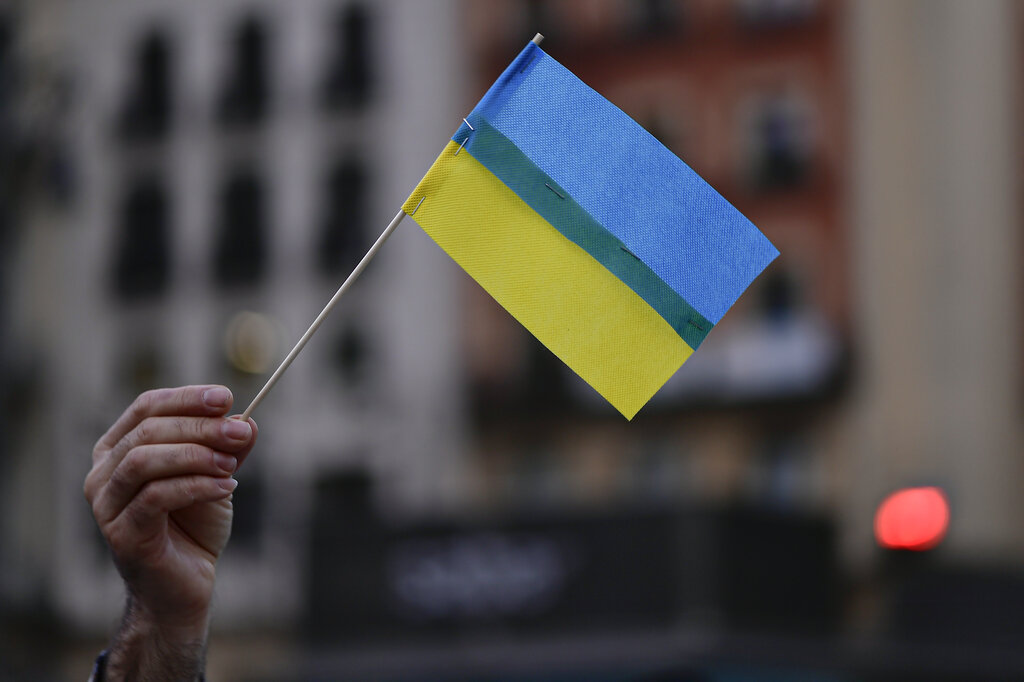New York University’s Student Government Assembly has leapt into action in the immediate wake of the crisis in Ukraine. From providing funding, to creating a safe space for any and all to learn or grieve, they have sought ways to provide support to members of the community affected by the conflict.
Two days before Russian President Vladimir Putin invaded Ukraine on Feb. 24, Ron Hall, vice chair of SGA’s President’s Council, and other SGA members met with Richard Baum, NYU President Andrew Hamilton’s Chief of Staff, and Deputy Chief of Staff Tracey Gardner to share the unease and burden felt by students impacted by the looming crisis and discuss ways to support them.
“We echoed how a lot of students — a lot of the Ukrainian and Russian students — were concerned and just weren’t in a great place, especially as it extends to their family and friends who were located out there,” Hall said.
On Feb. 28, SGA held a vigil during which community members gathered to listen to and learn from students and faculty speakers about the invasion and its impact. SGA held a follow-up event on March 3 to hear from students directly about what else they needed from the organization. It’s an effort SGA plans to continue, Hall added.
Along with running events, SGA has developed a targeted support group with experts equipped to help students during times of crisis. The student government is also placing a focus on direct financial aid for those who need support.
“The NYU Student Emergency Fund is always available, and the president’s office has confirmed that they are prepared to offer financial support above the $500 limit,” said Mira Silveira, Vice Chair of the Student Senators Council. “We are encouraging students to take advantage of this resource as the crisis unfolds.”
SGA is also working with various organizations and charities to support Ukraine. According to Hall, the student government is currently organizing a donation drive on a school-by-school level, referring to the universities’ institutions, likely to occur after next week’s spring break.
The student government has also used its social media presence to publicize events and resources, even adding a section to its Linktree, which can be accessed through SGA’s Instagram page, specifically focused on Ukraine.
SGA is also pushing for increased classroom flexibility for impacted students. The student government is working with faculty to ensure students feel supported in the classroom and do not feel obligated to put school assignments ahead of their well-being, according to Hall.
They have also created spaces to educate the NYU community about the crisis in Ukraine, while helping those affected to feel safe and be heard. On March 4, SGA collaborated with the Jordan Center for the Advanced Study of Russia and NYU community members to host a teach-in event.
“SGA can give [experts] space to be heard along with the voices of students being impacted,” said Nicholas Felber, Senator for graduate students of the Steinhardt School of Culture, Education, and Human Development. “SGA can also use our position as a voice for students, past and present, and resources to ensure anyone and everyone being impacted is supported.”
This is in line with what Hall considers to be SGA’s mission on behalf of the NYU community: bring concerns echoed on social media and in day-to-day student interactions to the university’s leadership.
“As student government, we are the primary student advocacy group,” Hall said. “We have the most access to university leadership.”
SGA has already taken steps to ensure all students in the NYU community feel supported.
“We have seen how quickly the world has rallied to supply help to those in Ukraine and also the racism that appears in reporting and providing assistance,” Felber said. “We at SGA need to be aware of and share these stories to ensure that students here feel seen and have space to process as the situation continues to develop.”








